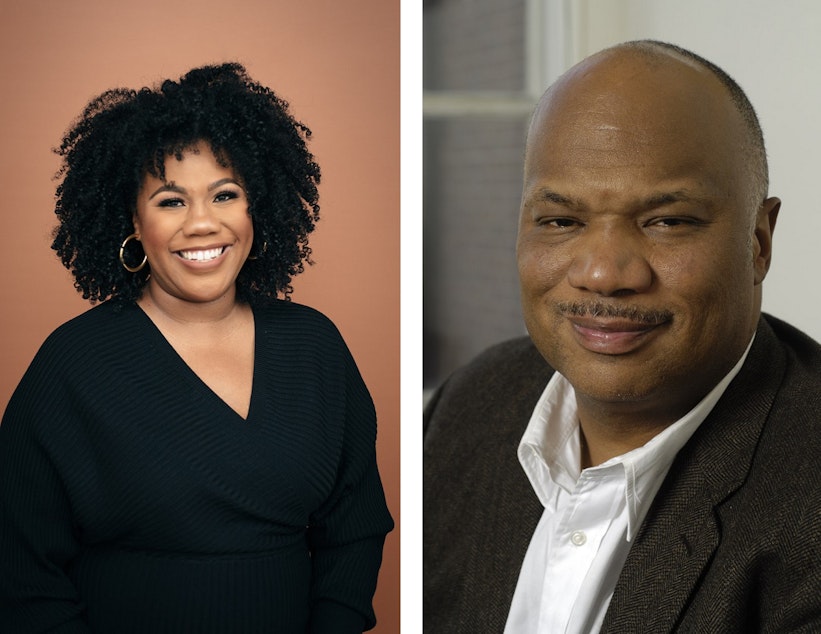Before you hail American democracy, consider its roots

An attack on democracy – that’s how leaders are describing the insurrection at the U.S. Capitol. But democracy is a governing system that was never designed for everyone to participate.
Michael Hanchard, a professor of political science at the University of Pennsylvania, says that if we believe democracy will save us, we may need to think again.
The author of The Spectre of Race: How Discrimination Haunts Western Democracy, Hanchard spoke with his daughter Jenna Hanchard. Jenna is a KUOW contributor and Lola’s Ink journalist.
Jenna Hanchard:
President-Elect Joe Biden talked about how our democracy is under attack. From what you know about how democracy works, not just in this country, but across the world, what is your reaction to these types of comments?
Michael Hanchard:
There's a tendency to talk about democracy A) as something that is a settled concept, and that all people who live in particular society think about democracy in the same way.
In the United States it’s particularly ironic, because at this nation's founding, certainly the enslaved did not have a right to vote. And white women, for example, didn't have a chance to vote until 1920.
The indigenous were considered sovereign, dependent nations.
There are several populations that live in the territory of United States who are not citizens of the United States. For Biden to say that we've had this sort of unfettered, direct, undisturbed democracy since the beginning of the country is basically not to look U.S. history squarely in the face.
Jenna Hanchard:
Expand on that. I think a lot of people use the word democracy and say, let's go back to our democracy, let's protect and preserve our democracy. But you argue that democracy in and of itself was never intended to serve everyone.
Michael Hanchard:
Exactly. If you go back to ancient Athens was not designed to allow the enslaved or Athenian women for that matter.
Democracies basically draw a line between those who can participate in the polity, that has a relationship between government and governed, and those who cannot. There are distinctions made between immigrants and migrants and residents as opposed to citizens, but democracy was never designed, at least initially to mean freedom or equality for all.
Jenna Hanchard:
Some of the conversations with folks that I've had within this last year, some of them are like, 'We don't want to change the system. We want a whole new system! We can't just continue to function.' So if not democracy, then what kind of system or society can we possibly envision?
Michael Hanchard:
Even if we held with the premise that some form of democracy is not the best, but it's just better than every other form of political rule. Even if we accepted that premise, in a place like the United States, it's clear from even what happened last week at the Capitol that the Constitution needs to be rewritten.
Most constitutional democracies have been rewritten over time. Most countries we can think of that have democratic policies. The United States is the only one that hasn't.
Jenna Hanchard:
Other democracies have rewritten their Constitution and the U.S. is the only one that hasn't?
Michael Hanchard:
Canada, Germany, Sweden, Switzerland, the Netherlands, Ghana – have had their constitutions rewritten.




